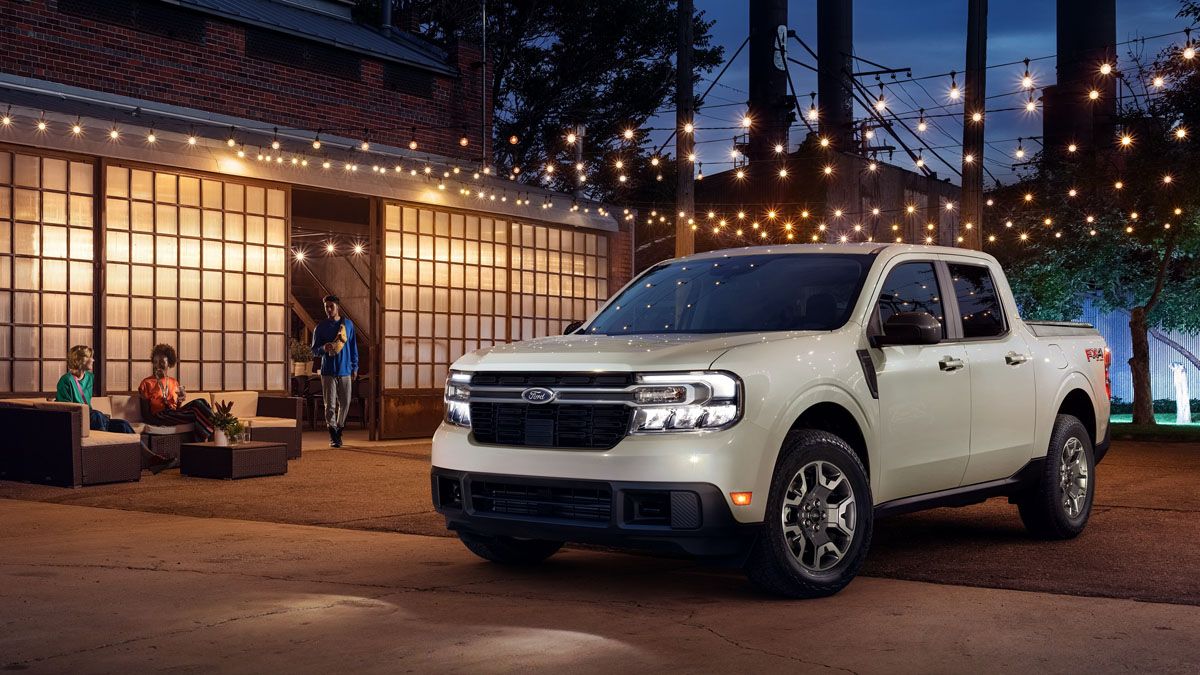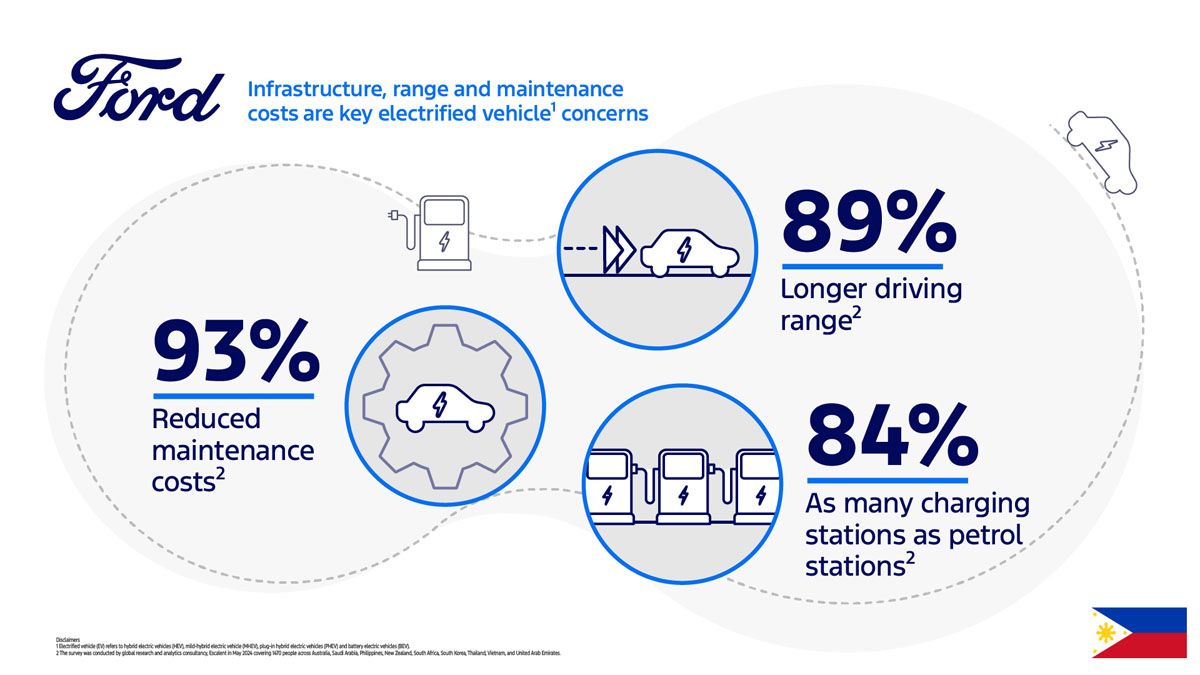Ford Study: Filipinos keen on electrified vehicles but worried about infrastructure
Hybrid vehicle is top choice
By Inigo Roces

Electrified vehicles are certainly on Filipino car buyers’ radar, but they won’t quite make the leap yet until the infrastructure is improved.
As part of its multi-market research, Ford conducted a survey through global research and analytics consultancy, Escalent in April/May 2024, covering 1470 people across Australia, Saudi Arabia, Philippines, New Zealand, South Africa, South Korea, Thailand, Vietnam, and United Arab Emirates.
Among them were Filipino drivers and those wanting to buy a new car. The study was conducted to understand how buyers in various markets viewed electrified vehicles so that Ford could be better prepared in its pursuit of an all-electric future.
More than 40 percent of Filipinos are considering purchasing an electrified vehicle in the next 12 months, according to the Ford Motor Company survey, with most preferring hybrid technology.
This research highlights the need for continued efforts to educate the public about electrified vehicles, address concerns about cost, range, and infrastructure, and promote the benefits of electric mobility.
Here are some of the key takeaways the research revealed about drivers in the surveyed countries.

Nice and familiar
Drivers in the Philippines are familiar with electrified vehicles, with most respondents classifying them as being ‘fun to drive’, ‘cool’, ‘sporty’ and even ‘easy to own’. More than 49-percent of respondents said they’d ridden in an electric vehicle with 33-percent claiming to have driven one. More than 70-percent of respondents agreed that owning an electric vehicle in the Philippines is practical.
Most respondents said, ‘if cost was not an issue’ that they would choose a hybrid vehicle, the second and third choices were a plug-in hybrid electric vehicle and battery electric vehicle, respectively.
Practicality
Saving money by not buying fuel was rated as a top benefit of owning an electric vehicle, but many believe maintenance for electric vehicles are higher in the long run.
Most respondents agreed they would be ‘more likely’ to choose an electric vehicle to provide delivery services or ride sharing, and that they would prefer an electric vehicle for their daily commute. The majority of Filipino respondents noted they wanted electrified vehicles to deliver a longer driving range and reduced maintenance costs.
Almost 85-percent of respondents said they would be ‘more likely’ to purchase an electric vehicle with ‘greater’ towing capacity, while 85-percent are looking for their first electric vehicle to be off-road capable.
Love connection
If you’re looking for love then you can forget roses, because more than half of the respondents said they would be ‘more likely’ to date someone who drove an electric vehicle. 81-percent said they would choose an electric vehicle to make a good first impression on someone.
Infrastructure challenge
The biggest hurdle to electric vehicle ownership in the Philippines, according to 39-percent of respondents, is inadequate charging infrastructure. Nearly half of all the Filipino respondents are unaware of any charging stations within 20-kilometers of their home, agreeing there should be as many charging stations as service stations. Indeed, a service station ranked highest with Filipinos as the key location for charging sites, followed by a supermarket or shopping center and then a park or recreation facility.
Myth-conceptions
But there are still ‘myth-conceptions’ giving some potential buyers pause for thought. For instance, just under half of respondents believe charging an electric vehicle at home is as expensive as filling up a gasoline vehicle.
Ford wants to develop its electrified vehicle1 future by leveraging iconic models like the Mustang Mach-E, E-Transit and Ranger PHEV. In addition to offering electrified versions of its most popular vehicles, the company is harnessing electrification to deliver more of what customers love about them: performance, capability and productivity.